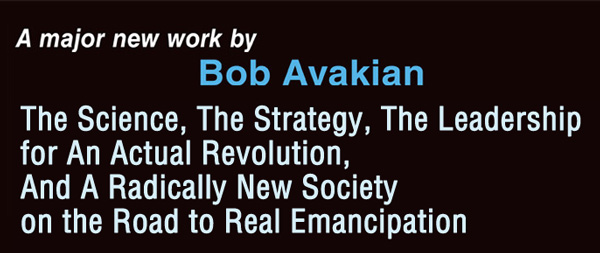From A World to Wins News Service:
Turkey: Contradictions Reach a Boiling Point
July 23, 2016 | Revolution Newspaper | revcom.us
July 21, 2016. A World to Win News Service. By Ishak Baran. A struggle for political power suddenly exploded into the open on the night of July 15 when units of different branches of the armed forces in Turkey attempted a military coup. Well into the next day, it was far from clear who exactly held the reins of power in Turkey—who was in command of the second largest army in NATO. In the aftermath of the coup attempt, the Erdoğan regime is unleashing massive repression and efforts to consolidate its power and push forward its Islamist agenda and regional ambitions.
The sudden fragmentation of the political order in this country sent shock waves around the world. The explosion in Turkey, while in appearance taking the immediate form of a dispute between rival Islamist factions, is fundamentally rooted in and fuelled by the long-simmering contradictions in the whole Middle East, especially the intensifying conflict between Western imperialism, on the one hand, and political Islamism on the other. Emergency meetings of foreign ministers were convened in countries from Moscow to Washington and at the European Union and NATO level, as representatives of all the major players anxiously scrambled to get a handle on this sudden eruption of political uncertainty and turmoil.
The coup forces arrested the chief of the armed forces and top generals and admirals in an effort to force them to support the coup. They bombed and laid siege to parliament to annul its authority. Most importantly, Recep Tayyip Erdoğan, the president of Turkey and leader of the governing AKP (Justice and Development Party), barely escaped with his life when the seaside hotel where he was staying was bombed.
In a statement read over the state television channel after soldiers seized it, the coup forces, calling their executive body the “Peace at Home Council,” said they had “taken over the administration of the country to reinstate constitutional order, human rights and freedoms, the rule of law and general security that was damaged.” Their intervention, they argued, was necessary to re-establish law and order in the face of Daesh (ISIS) bombings and, even more significantly, the armed opposition of the Kurdish nationalist PKK, issues Erdoğan has not been able to solve. But from early on it became apparent that they were unable to rally sufficient sectors of the military and security forces, the ruling class, and political parties bitterly at odds with the Erdoğan regime, or appeal to people at large and mobilize them in the streets.
Consequently, the initial disarray in the executive branch in this dangerous and precarious situation was overcome as key elements of the power structure and loyal military leaders rallied around Erdoğan, creating a cohering centre that could exploit the weaknesses of the conspirators and organize resistance against them. Erdoğan took the risk of flying into Istanbul while pro-coup jet fighters still prowled the skies, and then demonstrated his willingness to go to the brink of civil war by using a smart phone to connect with TV channels and call on his supporters to fight it out in the streets with pro-coup military units. The country’s 85,000 mosques were signalled to use the loudspeakers used to announce prayers to mobilize “believers” to take up the “holy task” of self-sacrificingly defending the regime and foiling the attack on their “democratically elected government.”
Erdoğan demonstrated he could mobilize sufficient numbers of the poor and sections of the middle classes in the major cities who had been brought into AKP’s grip since this Islamist party came to power in 2002-3, an ascension that marked a major shift in Turkish politics, where the ruling classes had long preferred to rule in the name of secularism.
The success of Erdoğan’s appeal marked the beginning of the turning of the tide in the political confrontation. Along with the armed engagements carried out by security forces loyal to the regime, emboldened and in some cases armed civilians literally tore the guns out of the hands of pro-coup soldiers. Political parties and forces that had been bickering with Erdoğan, even the HDP (a parliamentary party sympathetic to PKK), were obliged to come out against the coup, due to the dynamic that Erdoğan, seizing the opportunity, set into motion. Most of the country’s elite, including old-line pro-American big capitalists, feared a power vacuum more than they feared him. Very simply, Erdoğan was able to demonstrate that his hold on power was the only alternative to political chaos and civil war.
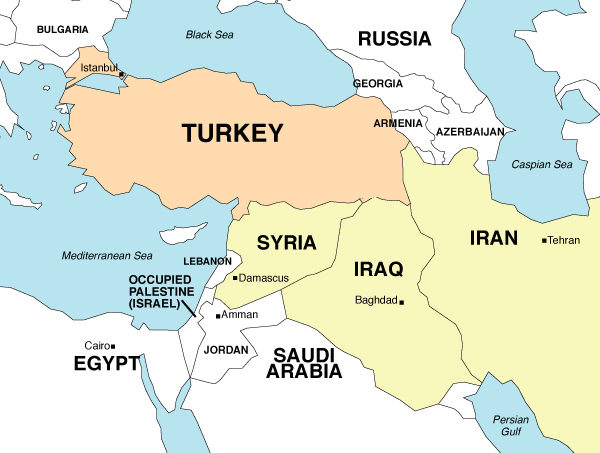
Despite the pledge by the coup makers that they would fulfil “the obligations set by all international institutions, including the United Nations and NATO” in hopes of receiving support from the U.S. imperialists, and despite the appetite for Erdoğan’s downfall nakedly displayed by CNN and other Western media, the U.S. and other Western powers clearly remained unconvinced. They did not see the conspirators as able to serve strategic imperialist interests in this region of the world. They could not afford more chaos and disorder in a region they are fighting to bring under their control.
As the the New York Times wrote in an editorial, “The volatile Middle East cannot afford to have another state unravel, especially one that is also a bulwark of NATO’s eastern flank. Over the weekend, the U.S. emphasized its ‘absolute support for Turkey’s democratically elected, civilian government and democratic institutions’ but also urged restraint and a commitment to due process.”
Even if the U.S. is very unhappy with Erdoğan’s Islamism and service of reactionary particular Turkish interests, they have to be attentive to their much broader imperialist interests at stake in a region where the Turkish state and armed forces are an essential anchor of the current reactionary order. The NYT mentioned two reasons not to support the coup attempt: “Ties between the American military and Turkish military, a critical link in the Turkey-American relationship, will be trickier to manage. That could impede cooperation on Syria and other matters besides the Islamic State, including efforts to halt the flow of refugees into Europe.”
The coup attempt has to be situated not just in the context in Turkey but also in the broader context of the bloody confrontation between the U.S. imperialists and their Western allies, and jihadi Islamic fundamentalism (currently the predominant feature of the regional situation), and the intertwining of this with other contradictions, like the rivalry between the U.S. and Russia and even with its Western partners and regional powers like Iran, and also Saudi Arabia.
To a large extent it is the contention between the Islamist agenda and Western imperialist interests and the necessities this situation poses for the U.S. that have allowed maneuvering space for Erdoğan. This is what made it possible for him to not only resist U.S. pressure but turn the failed coup to his advantage to advance his agenda for the Islamization of the Turkish state and society and his regional ambitions. Using the accusation that the U.S. is behind the coup attempt, he has been able to paint it as part of a Western campaign to hold down the rise of a modern Islamist Turkish state as leader of the Moslem world. He relishes the idea of rubbing the U.S.’s nose in its predicament—that it has no alternative to him right now.
The fissures in the state revealed by the coup attempt leave Erdoğan with little alternative but forward flight, the speeding up of his timetable to restructure the state and the political landscape, even reshaping his own party. He is determined and now able—he called “the mutiny” a “gift from god”—to consolidate his hold on power and “cleanse” the military, security forces, intelligence services, judiciary and other government structures and the secondary and university systems of all opposition to his agenda. This means, particularly, those loyal to the rival Islamist trend led by Fethullah Gülen, who Erdoğan accuses of organizing the coup attempt, but also far broader sources of dissent and opposition. The revengist Turkish chauvinism laced with Islamic fanaticism that Erdoğan is unleashing in the wake of the coup attempt goes hand in hand with an all-out campaign to wipe out resistance in Turkey’s Kurdish provinces and the targeting of both the recently established autonomous Kurdish region in northern Syria (Rojava) and the PKK presence in Iraq. The fact that the Kurds have been backed and mobilized by the U.S. in fighting Daesh is Erdoğan’s pretext for stepping this up. He wants to exploit this situation to demand that the U.S. accept this extended projection of Turkish power.
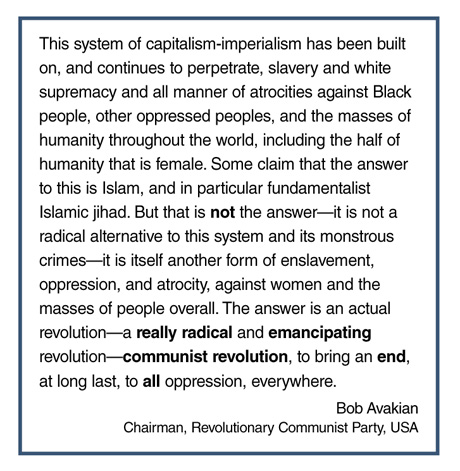
Paradoxically, Erdoğan’s temporary apparent triumph will make the whole ideological and political structure of the Turkish state more brittle and will likely bring him into further conflict with the U.S. The U.S. faces no less necessity than he does. It must confront his advance, in the context of the spiralling challenge to its imperial interests and mission in the Middle East. As a result, while the U.S. has had to recognize Erdoğan’s victory for now, the clash between Erdoğan and the U.S. will not wane but sharpen in this new situation. This is expressed by what the New York Times and other Western imperialist mouthpieces have said, that Erdoğan’s victory has been the best outcome under the circumstances but that he should show “restraint and a commitment to due process.” No one, of course, expects him to show any restraint—some 10,000 people have been rounded up for detention so far, and 5,000 people purged from their positions. So this is a justification, in advance, for U.S. retaliation when possible.
The coup attempt did not essentially stem from a political dispute between two different theological trends within Islamism. Both sides advocate the Islamization of Turkish society with all the horrors that this entails, including even more horrendous subjugation and degradation of women. Rather it is a side effect of the overarching contradiction between imperialism and Islamism and the underlying dynamics of imperialist development. The resulting fracturing of the Turkish political system has compelled different forces into motion against one another over questions of how to deal with the contradictions in the situation, internally and externally, and for different factions to see in these problems the opportunity to come out on top. This explains the slide of Gülen and Erdoğan’s earlier cooperation in promoting Islamism into today’s bloody confrontation.
The emergence of the AKP as the party of Islamist politics and the consolidation and entrenchment of its hold in the political institutions and society has been brought about by the fundamental dynamics of capitalism-imperialism—the relentless drive of globalization toward increased “modern” capitalist development, and the way this leads to the resurgence of traditional values and religious ideology, AKP’s “politics of piety.” The AKP advocated and flourished with “free market” capitalism, working hand-in-hand with imperialism, yet its drive for power, the ideological cohesion of political forces it rallies and its appeal to a section of the people has been persistently rooted in the same religious ideology (Islam) that this capitalist development is undermining. In other words, the reactionary romantic defense and promotion of the traditional way of life that is being undercut and replaced by the very dynamics of the world capitalist system in which the AKP and the sections of the old and the new capitalist entrepreneurs it represents are striving for a larger place and role.
Some time ago Bob Avakian presciently called attention to this phenomenon and incisively analyzed what he characterized as “a peculiar expression” of the fundamental contradiction of capitalism: the contradiction between highly socialized production, which increasingly ties people together on a world scale, and private (capitalist) appropriation of what is produced. Wealth, advanced technology and privilege are concentrated in the hands of a minority while poverty, hopelessness, the lack of education and the promotion of obscurantism are accumulating on the other side. What today has become the salient feature of the political terrain in the Middle East and North Africa, the increasingly devastating confrontation and deadly dynamic between imperialism and jihadist Islamic fundamentalism, was profoundly captured by Avakian’s analysis of “the two outmodeds”:
“What we see in contention here with Jihad on the one hand and McWorld/McCrusade on the other hand, are historically outmoded strata among colonized and oppressed humanity up against historically outmoded ruling strata of the imperialist system. These two reactionary poles reinforce each other, even while opposing each other. If you side with either of these ‘outmodeds,’ you end up strengthening both.”
The heightened contradictions and the accumulation of explosive material leading to sudden eruption of turmoil and upheaval has been dramatically revealed through the intense political crisis still reverberating throughout the Turkish state and well beyond. Yet among many people in or from Turkey and others who care deeply about the future of the Middle East, there has been a current of paralyzing disorientation and despair. This sentiment is not only the result of the strengthening of the Erdoğan regime, but even more a consequence of common political and ideological illusions. One is the idea that capitalist development is possible without fuelling Islamism, and consequently that Islamism’s appetites can be reined in. The other is that the ambitions Erdoğan represents could be tamed by relying on the formalities and institutions of bourgeois democracy.
This demoralization is linked to the prevailing lack of a correct understanding of the possibility of breaking out of the deadlock between imperialism and Islamism and all the horrors this situation is creating—that the same contradictions driving this process also provide the material basis to do so through revolutionary change. This revolution means sweeping away all forms of exploitation and oppression and the total transformation of this society aiming to achieve communism worldwide. With this goal guiding the thinking of communists, it becomes clearer why it is necessary to fight all along to transform the outlook of the people, to combat illusions and backward ideas. These illusions include the idea of working toward the gradual expansion of “democratic rights” instead of aiming to seize political power, and ignoring the problem of patriarchy and the oppression of women and overlooking the potential revolutionary energy of an all-out struggle for the emancipation of women. Or not challenging the enslavement of the mind by religion.
To see the reality beneath appearances—how the underlying contradictions driving the ugly and destructive developments in the region and now in Turkey also provide the material basis for a thorough-going revolution—requires the science of communism. Today this means grasping Avakian’s breakthrough in developing a more scientific approach and method to understanding the world and changing it. A telling example is that the new synthesis alone provides the framework to correctly understand the dynamics of the two outmodeds, one of the crucial problems facing the people in today’s world. Conversely, the failure to understand and wield the new synthesis and instead hanging onto some of the unscientific elements that have long plagued the communist movement has left people unable to correctly understand new developments such as the rise of political Islam (seeing it as a direct product of imperialist intrigue, or finding something “anti-imperialist” to support in it) and paralyzed in the face of the conflict of the “two outmodeds.”
As Avakian has explained, “So that’s why it’s important that the science of communism has been developed further, in a qualitative way, by building on what has gone before, in the main, but also casting off certain secondary aspects of the previous understanding of communism, which actually ran counter to, were in opposition to, its essentially scientific character.... So the significance of the new synthesis of communism is not that communism as a science, and its application in many different spheres, has been invented anew, but it has been further developed in many of these key areas, and this provides a qualitatively new basis for people, not just here, but throughout the world, to carry on the struggle to get beyond a world full of all the horrors that we’re now living under.”
Anyone and everyone who can’t stand the situation in the Middle East and the world has to urgently familiarize themselves with and grapple with this new synthesis of communism. Cores of people must emerge—and quickly—in Turkey and elsewhere, people who struggle to master and wield the new synthesis of communism and commit themselves to forging a vanguard force to take up the tasks of producing a movement for revolution and a revolutionary people, as this goal and understanding brings an increasing number of people into action.
This is how we can bring out, act upon and seize the revolutionary possibilities latent within the situation that is crushing the people today.
(Ishak Baran is a supporter of Bob Avakian’s new synthesis of communism and a veteran participant of the Maoist movement in Turkey.)
Volunteers Needed... for revcom.us and Revolution
If you like this article, subscribe, donate to and sustain Revolution newspaper.

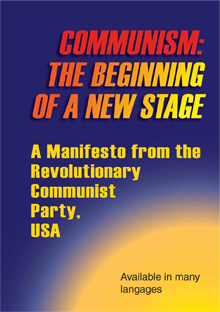
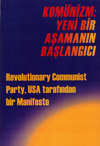 Available in English, Spanish, Farsi, Turkish, German, Portuguese, Arabic (draft)
Available in English, Spanish, Farsi, Turkish, German, Portuguese, Arabic (draft)